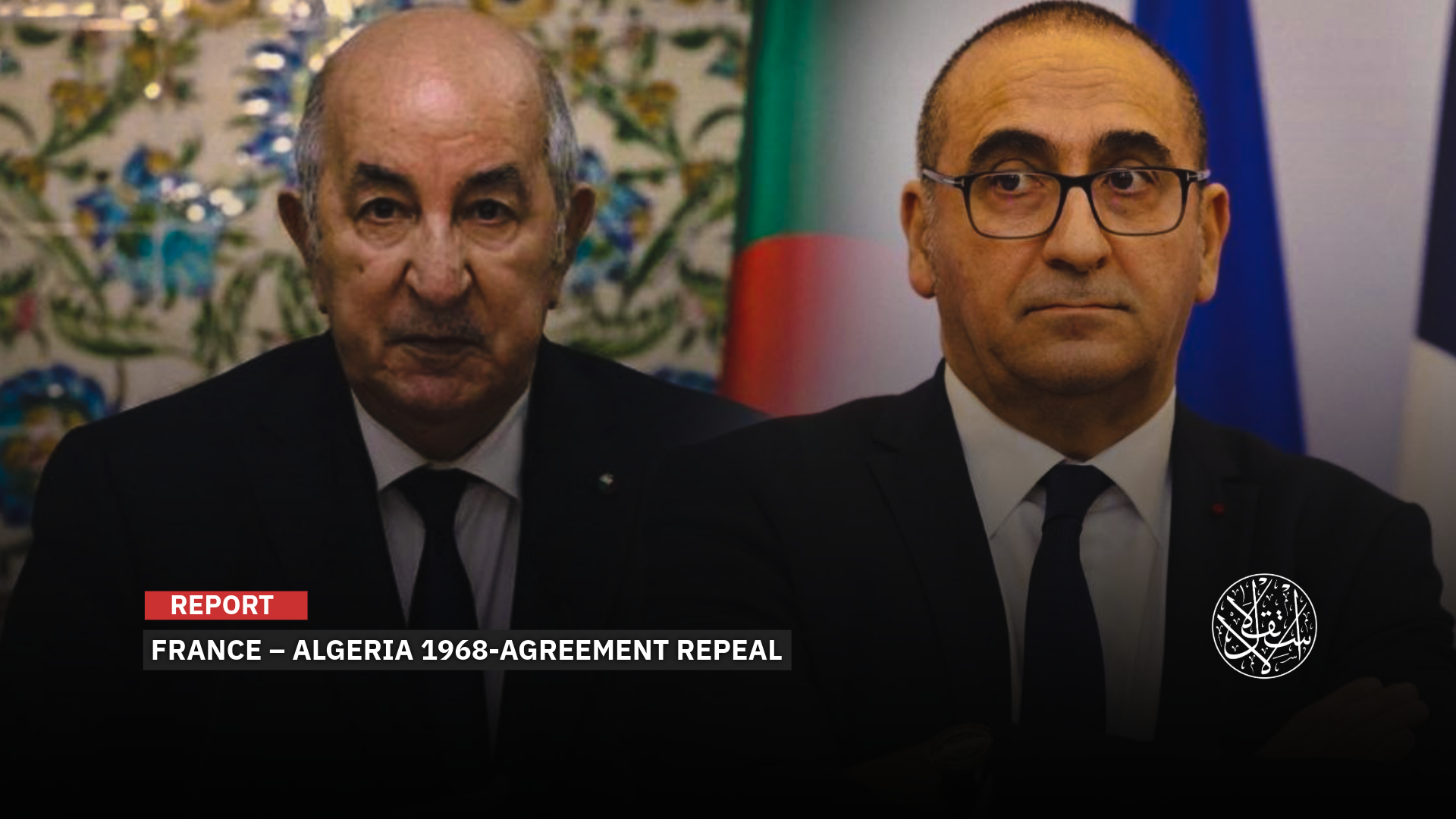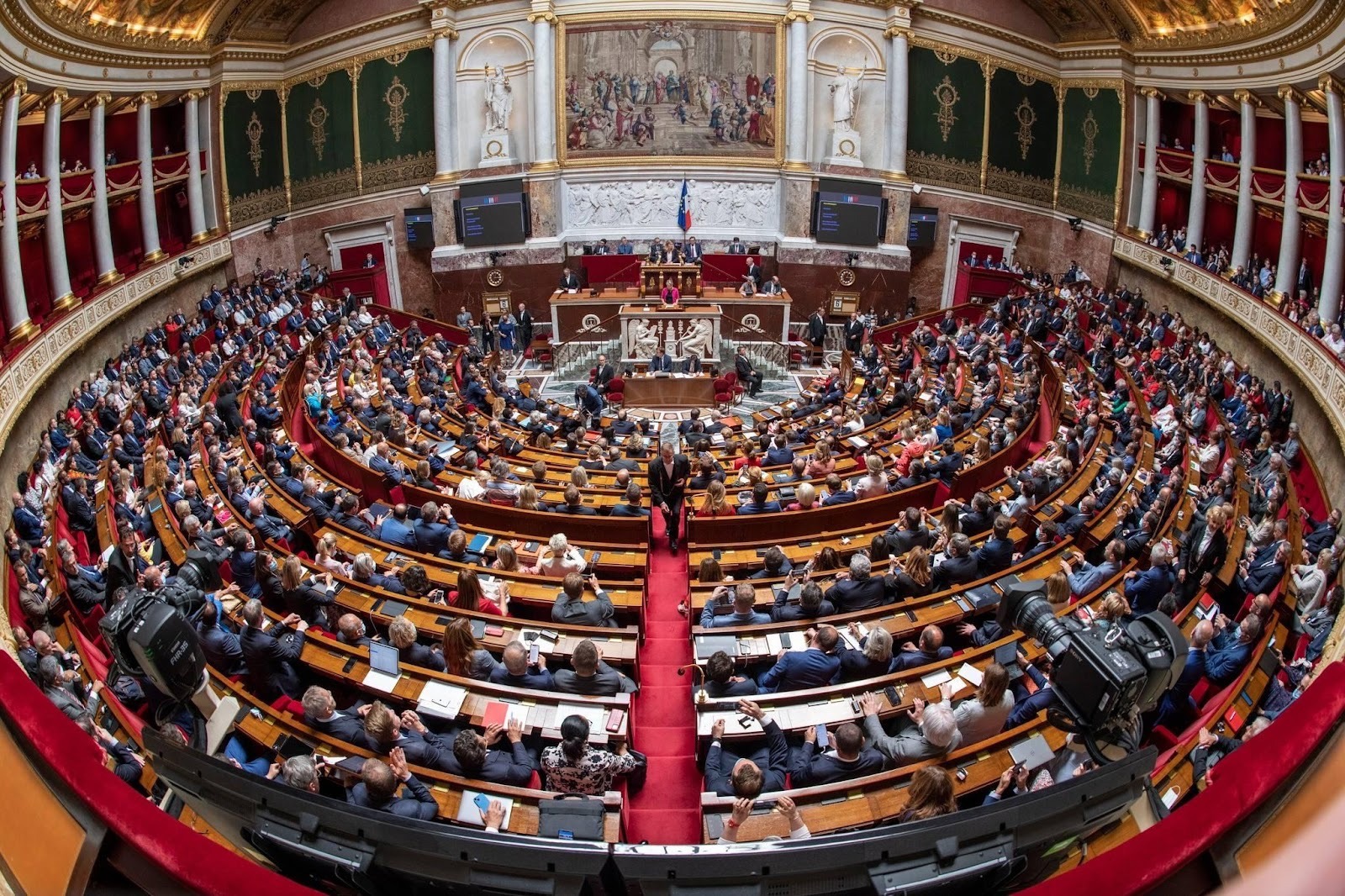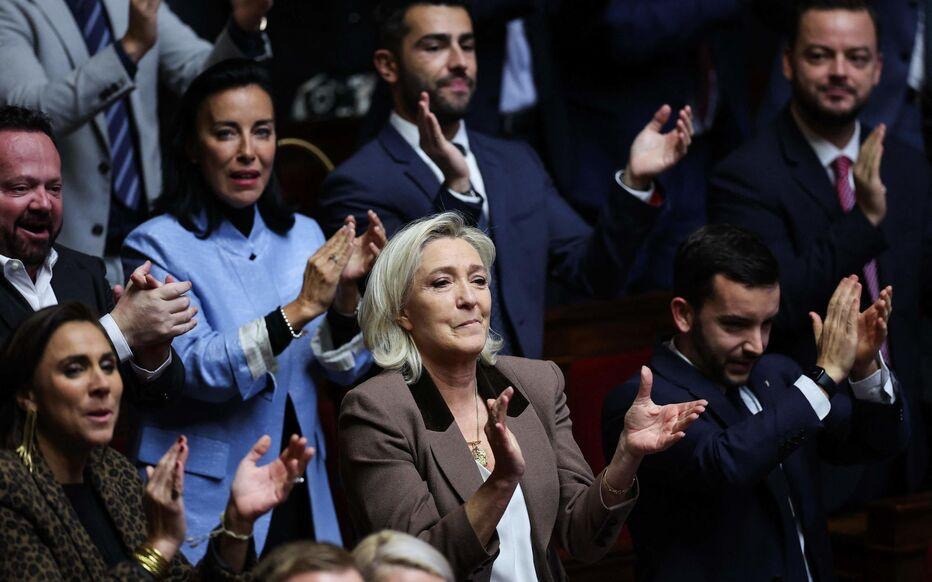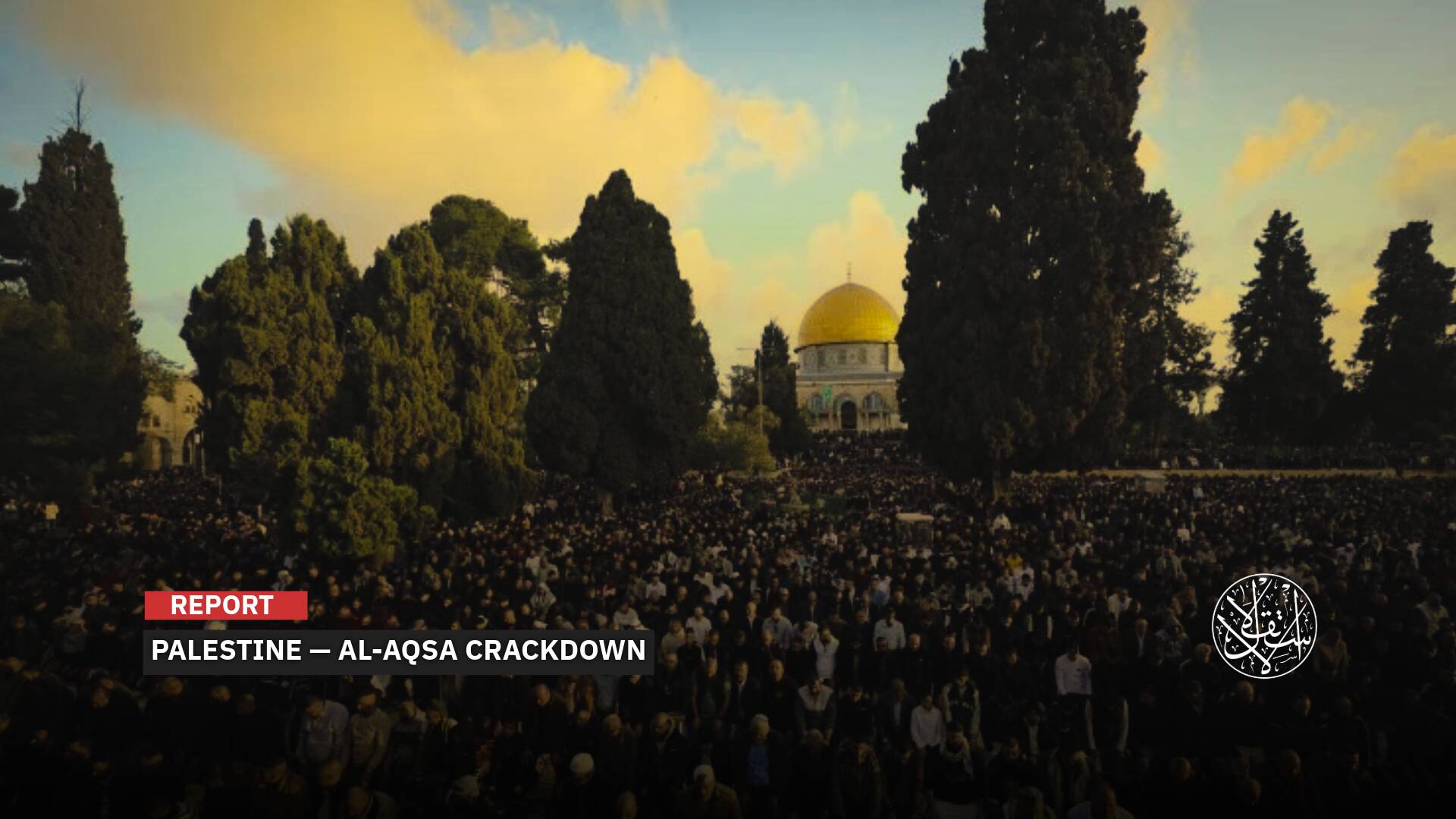Despite Macron’s Opposition: What Comes Next After the French Parliament Cancels the 1968 Agreement with Algeria?

The agreement granted Algerians priority in obtaining a 10-year residence permit in France more quickly than other nationalities.
Despite ongoing attempts to ease tensions between France and Algeria, recent developments appear to undermine those efforts. One such example is the move taken by the National Assembly in Paris regarding a historic agreement with Algeria.
In a razor-thin vote on October 30, 2025, French lawmakers approved, by a margin of just one vote, a draft resolution put forward by the far-right National Rally. The measure seeks to condemn or revoke the 1968 French-Algerian agreement.
The text was adopted with 185 votes in favor to 184 against, supported by MPs from Les Republicains and Horizons, while parties aligned with the presidential majority and the government opposed it.
Marine Le Pen, head of the far-right party’s parliamentary group, expressed satisfaction, saying, “It is a day that can be described as historic for the National Rally.”
“This vote represents the first text approved by the French parliament in our party’s favor, despite the opposition of the government and the left-leaning blocs close to President Emmanuel Macron,” she added.
The 1968 agreement granted Algerians a special status and set the terms for their travel, residency, and employment in France. It built on the Evian Accords, which ended the war between the two countries in 1962.
The agreement also gave Algerians priority in obtaining a 10-year residence permit more quickly than nationals of other countries, in addition to easing family reunification procedures and allowing family members arriving from Algeria to benefit from a 10-year residence permit as well.
It further simplified the process for granting a residence permit, in record time, to any Algerian who married in France.
Algerians were also entitled to apply for a 10-year residence permit after just three years of residence in France, compared with five years for other foreign nationals.
Three amendments were made to the 1968 agreement, in 1985, 1994, and 2001, and each of them, critics note, reduced the advantages previously afforded to Algerians.
Former French prime minister Edouard Philippe was among the first political figures to call for the agreement to be rewritten, arguing that it favored Algeria more than France.
Philippe stated in 2023 that the agreement was no longer “fit for purpose” for France. The demand gained momentum after the 2024 European elections, in which the far right secured numerous seats, prompting Marine Le Pen to call for the agreement to be revisited as well.
Internal Affair
Days after the vote, Algeria delivered its first official response through Foreign Minister Ahmed Attaf, who said the matter was “an internal French issue, a problem between the French parliament and the government of that country,” noting that “the Algerian state has not received any signal in this regard from its French counterpart.”
In an interview with Algeria International TV on November 2, 2025, Attaf expressed his regret at seeing France turn the history of a sovereign nation into “a topic for premature electoral competition.”
“To be honest, I have great respect for the French National Assembly, but when I followed this vote, the first thing that crossed my mind was, this is just another petty struggle for power,” he added.
Attaf insisted that the vote was “an internal matter that does not concern Algeria at this stage,” before noting that “it may concern us if it becomes an issue between governments, because the 1968 agreement is an agreement between two governments. It is an international agreement.”
He criticized what he described as “highly biased” interpretations of the 1968 agreement by some French politicians and media outlets, saying, “The agreement was never drafted to facilitate Algerian migration, quite the opposite. It imposed restrictions compared with the system established by the Evian Accords.”
Attaf also took aim at a report prepared by two pro-Macron parliamentarians, which estimated that the agreement cost France €2 billion a year. He argued that these figures “have no basis in fact. They are pure fiction.”
Deep Concern
Reacting to the vote, Abdelouahab Yagoubi, the representative of the Algerian community in France and a member of the Standing Committee on Human Rights and Dialogue among Civilizations in the Parliamentary Assembly of the Mediterranean, expressed deep concern and outright rejection of the move.
Yagoubi told reporters that the decision sends a troubling political signal, one that undermines the historical and human nature of relations between Algeria and France, and conveys a negative message to millions of citizens committed to dialogue, justice, and mutual respect.
He explained that the agreements of December 27, 1968, were the product of a balanced political and human understanding, and for more than half a century they ensured the rights of Algerian families living in France in a way that safeguarded their dignity while respecting the laws of the French Republic.
Submitting Algerians to the general legal framework applied to other foreign nationals, he warned, would “undermine mutual trust between the two peoples and weaken the foundations of the bilateral relationship.”
He called for collective responsibility and for wisdom to prevail in order to preserve the historical balances that underpin cooperation between both countries.
The Islamist Ennahda Movement, which is not represented in parliament, also weighed in on the escalating crisis between France and its former colony.
Its secretary general, Mohamed Douibi, speaking in Algiers on October 31, 2025, called for treating France on the basis of equality and shared interests.
Douibi stressed that the 71st anniversary of the independence revolution, November 1, 1954, requires prioritizing Algeria’s national interest over that of individuals, regardless of their positions, ranks, or personal stakes.
He also urged swift adoption of the long-delayed law criminalizing colonialism, and the lifting of the freeze on the law to generalize the use of the Arabic language.

Arm-Twisting
On the French official side, Interior Minister Laurent Nunez warned against adopting a policy of “arm-twisting” with Algeria.
Speaking to Le Parisien in early November 2025, Nunez said, “Those who persuade the French that arm-twisting and heavy-handed tactics are the only solution, the only way out, are mistaken. This does not work in any field.”
After expressing regret over “the circumstances in which this vote took place” in the National Assembly, the minister added that the clearest proof of the ineffectiveness of such an approach is that “the communication channel with Algeria is now completely cut.”
A diplomatic crisis between Paris and Algiers has been ongoing for more than a year, following France’s recognition in the summer of 2024 of Morocco’s autonomy plan for resolving the Western Sahara dispute, a decision endorsed by the UN Security Council in its most recent ruling on October 31, 2025.
Since joining the government, Nunez has repeatedly emphasized the need to resume “dialogue” with Algeria, underscoring the importance of security cooperation, particularly in countering jihadist groups in the Sahel region.
The stagnation in relations between the two countries is most evident in the complete halt of migration cooperation. The French interior minister confirmed that “Algeria has no longer accepted the removal of its nationals who are in an irregular situation since last spring.”
According to Nunez, 500 forced removals from France to Algeria had been carried out by the end of October 2025, compared with 1,400 over the same period in 2024.
This has led to French administrative detention centers becoming “completely full,” with the minister noting that Algerians account for “40 percent of administrative detention places,” according to his remarks.
Meanwhile, the left-wing opposition sharply criticized the French parliament’s move. Jean-Luc Melenchon, leader of France Unbowed, described the vote as “a new disgrace that revives the wars of the past.”
Olivier Faure of the Socialist Party questioned the absence of the Macron-aligned bloc, whose failure to turn up enabled the resolution to pass.
The split within the presidential camp was clearly reflected in the voting figures. Only 30 out of 92 MPs from the ruling coalition voted against the resolution, while others abstained and many were absent, a sign of the fragility of President Macron’s supporting majority in the face of a united right-wing front.

Hostile State
The new interior minister’s remarks sparked anger on the far-right of the French political spectrum. In this context, far-right writer and politician Eric Zemmour declared that “Algeria today is a hostile state, and should therefore be treated as an enemy.”
Speaking on a talk show on BFMTV on November 2, 2025, Zemmour criticized his country’s interior minister, saying, “Just read what Nunez said, and you will understand that he will bow to the Algerians, just as his predecessors did.”
He argued that confrontation with Algeria was necessary and that a balance of power must be imposed.
Zemmour called for “cancelling all visas,” “banning family reunification,” “freezing the money Algerians send to Algeria through Western Union,” and even “preventing senior Algerian officials from coming to France for medical treatment.”
Far-right figure Sebastien Chenu stressed the need to establish a balance of power with Algeria and to use the full extent of French leverage to show that France will not tolerate being taken advantage of.
Speaking to France Inter on Sunday, November 2, 2025, Chenu added, “I say let us do it, first because this concerns the Algerian regime. And I never confuse Algerians with this regime, which is hostile to France, which attacks France on a daily basis, and which is holding two of our citizens and refuses to lift their deportation orders, even though they no longer have any claim to remain on our soil.”
Greater Hardline Stance
Offering an academic reading of these developments, political science and international relations professor Amina Rabahi said the debate unfolding in the French political arena over scrapping the 1968 agreement that regulates Algerian migration reflects a shift in French political discourse toward greater rigidity and hostility toward foreigners.
Speaking to Algeria Now on October 31, 2025, Rabahi noted that this shift is taking place against the backdrop of a far-right surge that uses the migration file as a domestic electoral tool.
She explained that the preferential treatment granted to Algerians under the agreement has, over time, provoked growing opposition from far-right circles in France, which have framed the accord as a violation of the principle of equality among foreign communities.
Rabahi recalled in this context former president Nicolas Sarkozy’s remark that the agreement grants “an unjustified advantage to the Algerian community,” arguing that this position laid the groundwork for a political discourse increasingly marked by populism and racial overtones.
The professor stressed that the National Assembly’s vote carries no direct legal effect, since the French parliament does not have the authority to revoke international agreements, a prerogative that lies with the executive branch, represented by the president of the republic.
She predicted that this far-right trajectory would heighten tensions between Algeria and France if Paris continues to take unilateral steps that affect the interests of the Algerian community, which numbers more than two million.
Algeria, she added, “will not stand idly by in the face of any escalation of this kind,” and may respond in kind or revisit bilateral agreements to safeguard its interests and those of its diaspora.
For his part, French journalist Frederic Bobin argued that the National Assembly’s vote to annul the migration agreement represents a new obstacle to reconciliation between France and Algeria.
Writing in Le Monde on October 31, 2025, Bobin said it is likely that tensions between the two countries will flare up again following the vote by French lawmakers.
“We had been expecting signs of recovery after a dreadful year,” he wrote, referring to a string of crises between Paris and Algiers that reached levels unseen since independence, “which means the prospect of de-escalation will once again be delayed.”
Bobin warned that the vote could ignite a fresh cycle of tension between the two capitals, now trapped in a spiral of persistent mistrust.
He pointed to the frosty atmosphere reflected in the response of Prime Minister Sebastien Lecornu, who called for “renegotiating” the 1968 treaty and asserted that “France’s relationship with Algeria begins first and foremost with our own interests,” a sign that conciliatory aspirations between the two sides are unlikely to materialize any time soon.
Sources
- “Louvre heist, Algeria, drug trafficking, terrorism… The truths of Laurent Nunez, the Interior Minister” [French]
- “Paris downplays the parliament vote and reaffirms its commitment to dialogue with Algeria… An expert’s reading of the background behind the French position” [Arabic]
- “The National Assembly’s vote to ‘denounce’ the 1968 migration agreement, a new obstacle to easing tensions between France and Algeria” [French]












